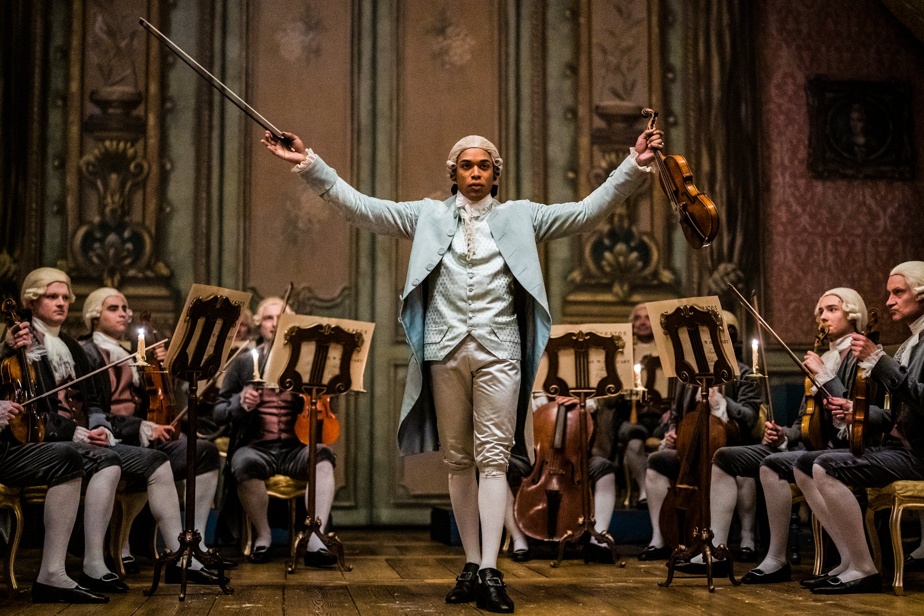Twenty years ago, Quebec filmmaker Raymond St-Jean, whose most recent film, Twilight for a Killer, was a great success, devoted a medium-length documentary to the same character entitled Le Mozart noir. He described the career of this contemporary composer of Wolfgang Amadeus, whose work was practically erased from collective memory.
It is the turn of the Americans to seize the little-known – and astonishing – story of Joseph Bologna de Saint-Georges, also known as the Chevalier de Saint-Georges. This time, the approach is obviously different. Bringing to the screen a screenplay by Stefani Robinson (who is part of the scriptwriting team of the Atlanta series), Stephen Williams, a director who has made his mark above all in the world of television series (Watchmen in particular), offers a Hollywood-style biographical film, punctuated by dramas and twists.
Although the story is inspired by the life of a real historical figure, we will understand from the outset the intention of the creators of this feature film who, from a few facts, have taken largesse for the benefit of entertainment. The story begins with none other than Wolfgang Amadeus Mozart who, in a Parisian theater, accepts special requests from the public, much like Gregory Charles would do in his shows a few centuries later. Then arrives the Chevalier de Saint-Georges who, from the back of the room, advances with his violin to challenge the composer of The Magic Flute in a battle with the instrument which he wins hands down.
This angle is interesting, insofar as Mozart is placed here in the same position as Salieri in Amadeus, the famous film by Miloš Forman. That said, this aspect of the story serves above all to explain how, in an 18th century society where a black man could hardly assert himself, the Chevalier de Saint-Georges rose to the top of Parisian society thanks to his exceptional talents. as a musician and a fencer, only to suddenly come down from it.
It’s always a little strange to see Americans translate a French story according to their narrative codes, but once our adaptation is done as a spectator, Chevalier has good times in store. The journey of this little-known character, magnificently inhabited by Kelvin Harrison Jr., also reminds us how much difference always struggles to be part of great history.















